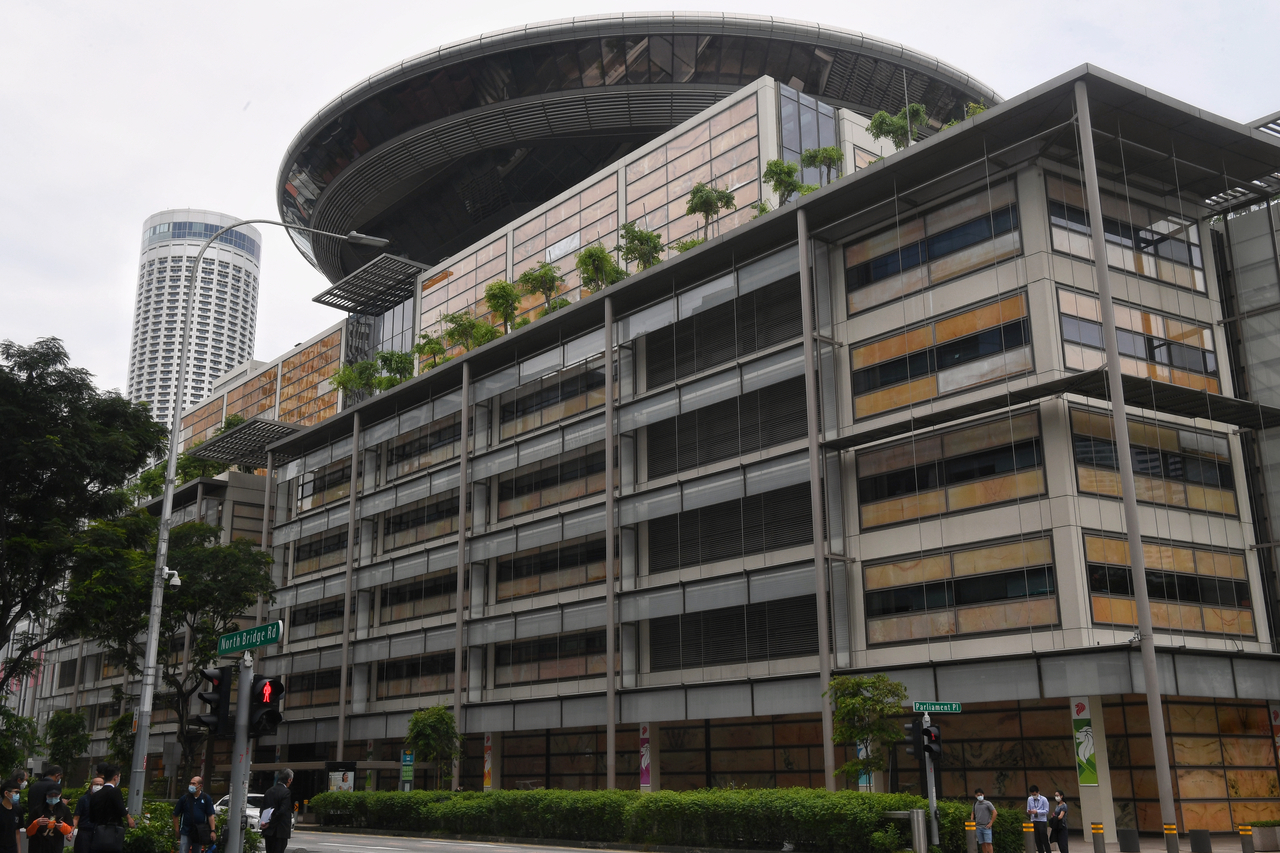Court of Appeal clears Nigerian man of drug trafficking after 9-year legal saga
Sign up now: Get ST's newsletters delivered to your inbox

The Court of Appeal ruled that its past judgment can no longer stand after new evidence surfaced about Nigerian Ilechukwu Uchechukwu Chukwudi.
ST PHOTO: LIM YAOHUI
SINGAPORE - In a final verdict that brings to a close a rare legal case that has seen many twists and turns in the past nine years, a 34-year-old Nigerian man was acquitted of a capital drug trafficking charge after the Court of Appeal reversed its 2015 decision to convict him.
Following a 4-1 split decision, a five-judge panel ruled on Thursday (Sept 17) that its past judgment can no longer stand after new evidence surfaced that Ilechukwu Uchechukwu Chukwudi was suffering from post-traumatic stress symptoms (PTSS) when he lied to narcotics officers in 2011.
The majority - comprising Chief Justice Sundaresh Menon, Judges of Appeal Andrew Phang and Judith Prakash, and Senior Judge Chao Hick Tin - quashed his conviction after concluding that the 2015 decision was "demonstrably wrong".
Ilechukwu arrived in Singapore from Nigeria on Nov 13, 2011, bringing along a black suitcase. He passed it to Singaporean Hamidah Awang, who was then arrested at Woodlands Checkpoint after nearly 2kg of methamphetamine were found inside.
Ilechukwu was arrested in his hotel room the next morning.
He was originally acquitted by the High Court in 2014 after the judge accepted his testimony that he did not know the suitcase contained drugs.
The prosecution appealed to a three-judge Court of Appeal, which overturned the acquittal and convicted him.
What tipped the scales at the time were the many lies told by Ilechukwu in his statements, which the apex court concluded could only be explained by "his realisation of his guilt".
In 2017, lawyers for the Nigerian succeeded in getting the apex court to reopen the case.
This was after an Institute of Mental Health report, prepared by the prosecution for sentencing, stated that Ilechukwu suffered from post-traumatic stress disorder (PTSD) after witnessing a massacre when he was five years old.
The case was sent back to the High Court for a hearing in which four psychiatrists - three for the defence and one for the prosecution - were called to give their expert opinion on PTSD.
In its judgment on Thursday, the majority said: "In our judgment, there is now a plausible innocent explanation that accounts for the applicant's lies and omissions in his statements."
The apex court accepted the evidence of the defence psychiatrists that Ilechukwu's history of PTSD and his PTSS in 2011 "may have led him to grossly overestimate the threat on his life" and that "this may in turn have prompted the applicant to utter the unsophisticated and blatant falsehoods in his statements in an attempt to escape from the death penalty and to save his life".
If this evidence had been before the apex court in 2015, "the outcome would have been different", said the majority.
In his dissenting judgment, Judge of Appeal Tay Yong Kwang said he did not think that the new evidence revealed any error in the previous decision to convict the Nigerian.
"I sympathise with the applicant for his past suffering in respect of whatever horrors he had witnessed in his homeland, especially as a young boy.
"However, in the final analysis of all the evidence here, the applicant's defence was truly a highly unlikely account from a totally unreliable and untruthful source," he said.
Justice Tay described the defence as "a case of hypothesis built upon hypothesis built upon hypothesis, in order to try to explain away a continuous and consistent stream of very focused lies".
Ilechukwu's legal team - Mr Eugene Thuraisingam, Mr Suang Wijaya, Mr Johannes Hadi and Ms Jerrie Tan - said in a media statement: "We are delighted that justice has prevailed."
The lawyers, who acted under the Legal Assistance Scheme for Capital Offences, said: "It has been a long and hard-fought pro bono case, involving specialist psychiatric evidence and issues of cross-cultural sensitivities.
"Had it not been for the fortuitous production of the IMH report, our client would have been sentenced to death or life imprisonment."


